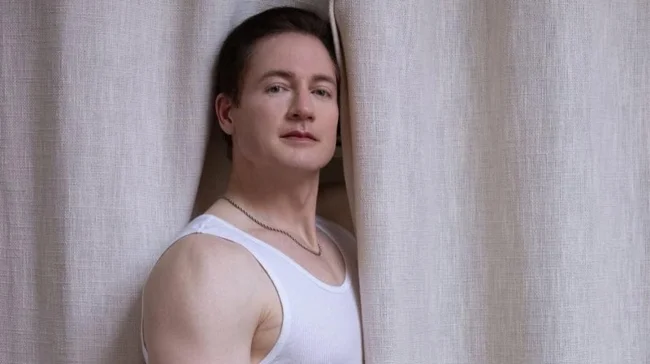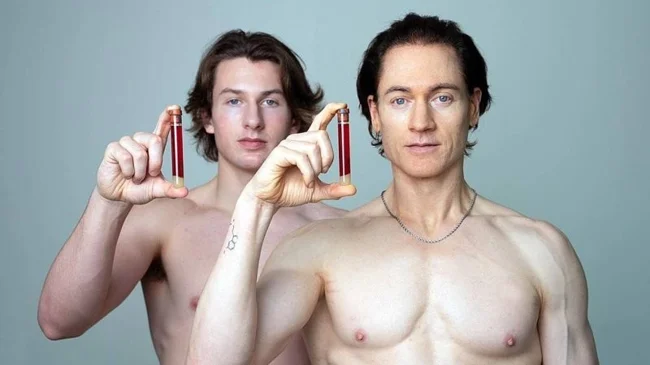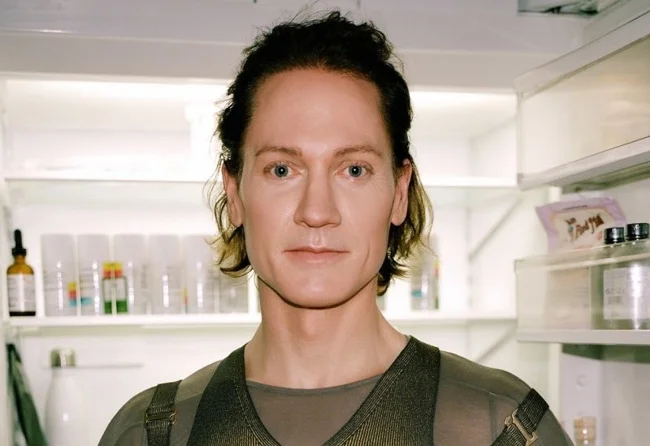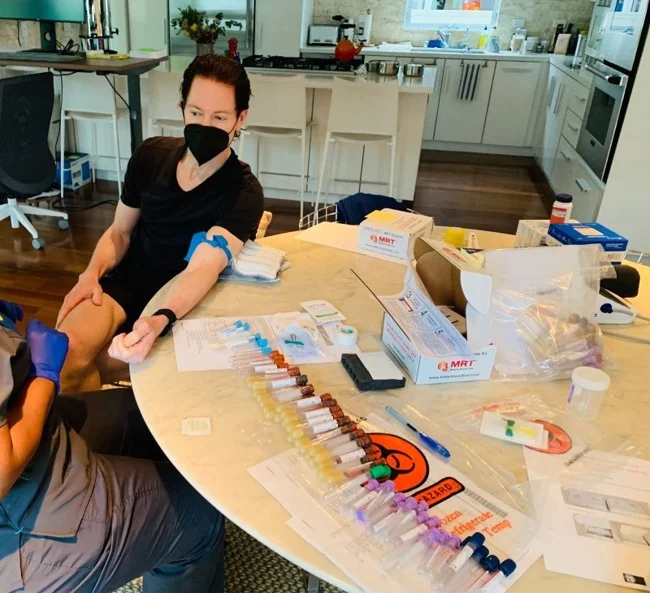A millionaire biohacker spent many years on rejuvenation, but only accelerated the aging process (5 photos)
His cholesterol level jumped, he developed mouth ulcers and other side effects. 
Brian Johnson is a 47-year-old American IT millionaire and biohacker. These are those who try to break the body's aging system and stay slim, beautiful and young for many years. 
Brian Johnson
Johnson is the most famous representative of this movement. And he became popular thanks to active promotion in social networks and advertising of his lifestyle. According to the youthful rich man, his daily routine looks like this.
For breakfast, he takes two dozen nutritional supplements and medications.
An hour-long workout and a nutritional cocktail.
A vegan lunch of vegetable puree.
For dinner - an examination. He takes tests and undergoes other medical procedures every day.
It is not entirely clear how he does not lose consciousness from malnutrition. Either he charges from an outlet, or actively uses intravenous nutrition.
But just recently he claimed that he has the heart of a 37-year-old, the skin of a 28-year-old and the lung capacity of an 18-year-old. And he threatened to invest several million more dollars in his biohacking. It got to the point that he transfused himself with the blood of his 17-year-old son. 
And recently Johnson admitted that he took rapamycin for 5 years - this drug suppresses the immune system. Typically, it is given to patients after organ transplants to prevent tissue rejection. The millionaire and his team of assistants were inspired by experiments on mice, which the drug supposedly extended life, and began to swallow it.
Over the course of 5 years, I tested various protocols for taking rapamycin, including weekly (5, 6, and 10 mg doses), biweekly (13 mg), and alternating weekly doses (6/13 mg) to optimize rejuvenation and reduce side effects. 
And for years everything was fine, and then Johnson developed mouth ulcers, his cholesterol and blood sugar levels jumped, his wounds began to heal slowly, and his pulse began to play up. Then the biohacker read the latest research from Yale University about how rapamycin actively accelerates the aging process, and realized that he had done something wrong.
Despite the enormous potential of preclinical research, my team and I came to the conclusion that the benefits of lifelong rapamycin do not justify the serious side effects, he said.
How much money he now needs to invest to eliminate the consequences of such "rejuvenation" is not reported. But the fact is that the biohacker, despite all his efforts, only aged even more. 
And all the efforts, along with the millions of dollars spent, went down the drain.




























